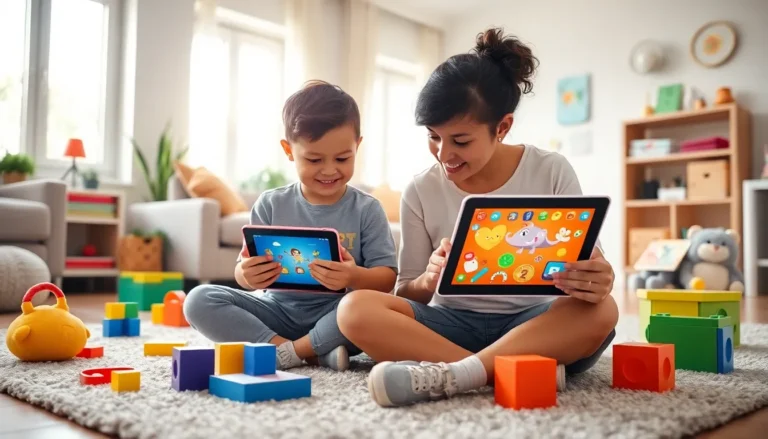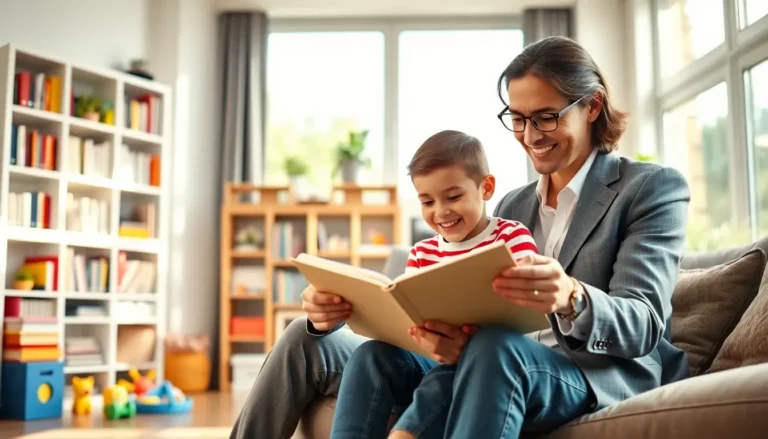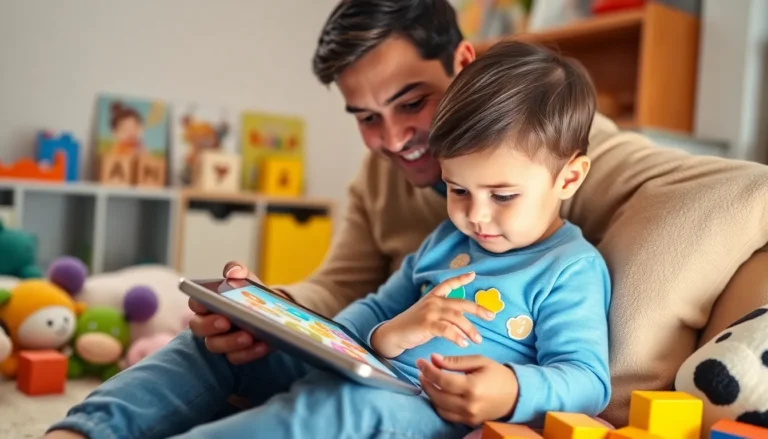Navigating the world of parenting can feel like walking a tightrope, especially when you’re doing it on your own. But not all parenting journeys are the same. When it comes to parenting styles, the terms ‘solo’ and ‘single’ often get tossed around like confetti at a parade. While many might think they’re interchangeable, they hold distinct meanings that affect the dynamics of raising a child. So whether you’re a lone wolf or a fabulous single parent, let’s jump into the nitty-gritty and unravel the differences between these two parenting paths, while keeping a chuckle or two along the way.
Table of Contents
ToggleUnderstanding Parenting Structures

Parenting can manifest in a variety of structures, each bringing its own set of dynamics, challenges, and joys. To distinguish between solo and single parenting, it’s crucial to first grasp the broader context.
From blended families to co-parenting arrangements, parenting structures are often as diverse as the children they raise. Each option offers unique experiences, some rely heavily on community support, while others flourish in independence. Understanding the nuances of these structures helps clarify why the terms solo and single parenting, though similar, represent different journeys.
Defining Single Parenting
Single parenting refers to a situation where one parent raises their child without the support of another parent in the household. This can stem from a variety of circumstances, including divorce, separation, or the decision to parent alone after a relationship.
In this structure, the parent often balances multiple roles: the decision-maker, the breadwinner, and the emotional supporter. Many single parents navigate the challenges of sharing custody and maintaining schedules that involve another parent, which can complicate their daily routines. These parents are often heroes in the eyes of their children, juggling jobs, school meetings, and the constant quest to provide a loving home.
Defining Solo Parenting
Solo parenting, on the other hand, is a term typically used to describe a situation where one parent takes on the full responsibility of raising a child, often without any involvement from the other biological parent. This could be a choice made by the parent or a result of circumstances, but it usually means that the parent is solely responsible for the child’s upbringing.
In essence, the solo parent handles everything, from the daily grind to major life decisions alone. They often embrace an autonomous parenting style, allowing them to define their household according to their beliefs and values. This independence can be empowering, though it doesn’t come without its unique challenges.
Key Differences Between Solo And Single Parenting
At first glance, solo and single parenting may appear similar, but some key differences set them apart.
- Involvement of the Other Parent:
In single parenting, the other parent often still plays some role, whether through shared custody or occasional visits. Solo parenting usually indicates the absence of the other parent, meaning the solo parent is the sole guardian.
- Decision-Making Power:
Solo parents have complete authority over decisions affecting their child’s life. They’re the solo conductors of their family orchestra. In contrast, single parents often need to consult with the other parent, especially in joint custody scenarios, complicating decision-making.
- Support Systems:
While both parenting styles can benefit from community support, solo parents may rely more heavily on external support networks because they lack another parent’s input or involvement.
- Emotional Dynamics:
The emotional weight can differ. Single parents may still navigate complex feelings around their co-parenting relationship, whereas solo parents may focus more on self-reliance and established routines.
Societal Perspectives On Parenting Styles
Society often holds varying perceptions of single and solo parenting, influencing how parents view themselves and how they’re viewed by others.
In many communities, being a single parent is a common scenario: the media frequently portrays single fathers and mothers as superheroes. On the other hand, solo parents might sometimes face stigma or judgment due to societal expectations surrounding family structures. These perceptions can affect a parent’s mental health and their interaction with their children, shaping how parenting roles are viewed and accepted.
Challenges Faced By Solo And Single Parents
Both solo and single parents encounter their own unique hurdles, even though sharing the challenges of raising children alone.
- Time Constraints:
Time management often emerges as a critical struggle. Juggling work, errands, and parenting leaves little time for self-care in both scenarios.
- Financial Pressures:
Money can be tight when one person is responsible for everything, leading to financial stress that permeates family life.
- Emotional Weight:
Both solo and single parents feel the emotional toll of parenting alone. Feelings of loneliness or stress frequently arise: finding reliable support can be a challenge.
Support Systems For Solo And Single Parents
Support systems play a crucial role in the lives of both solo and single parents. While both groups may lean on friends, family, and community resources, the nature of their support often differs.
Single parents might find solace in co-parenting groups, where they can share insights and strategies with others in similar situations. Meanwhile, solo parents may rely heavily on local parenting networks, online forums, and supportive friends who understand the challenges of raising a child on their own.
Connectivity is important in a parenting journey, and establishing a well-rounded support system can provide both types of parents with the encouragement they need.








